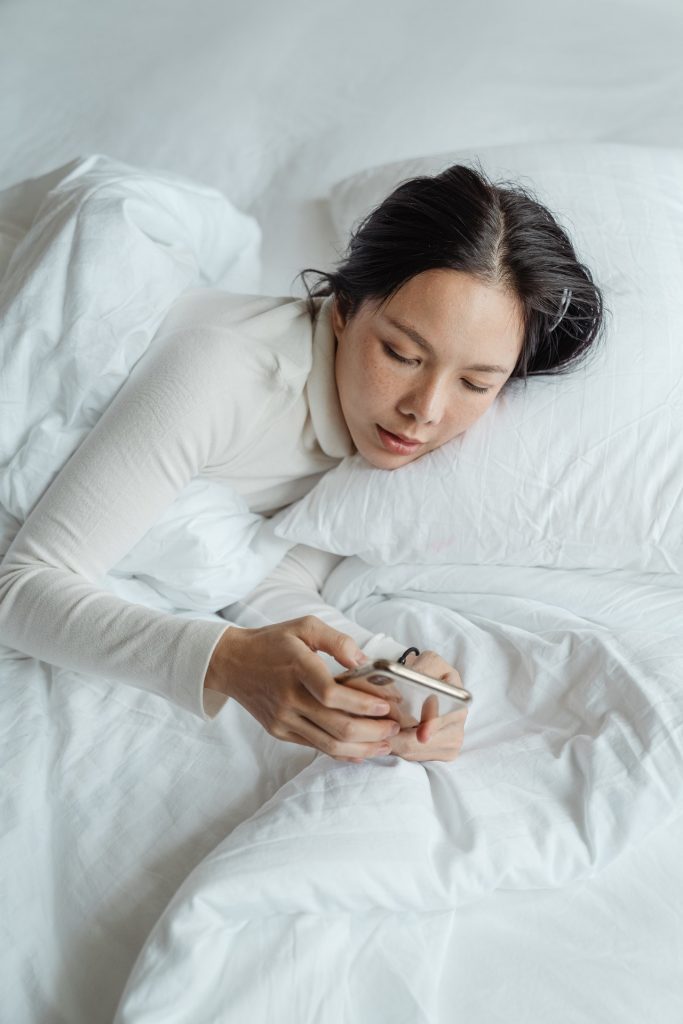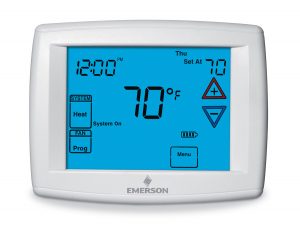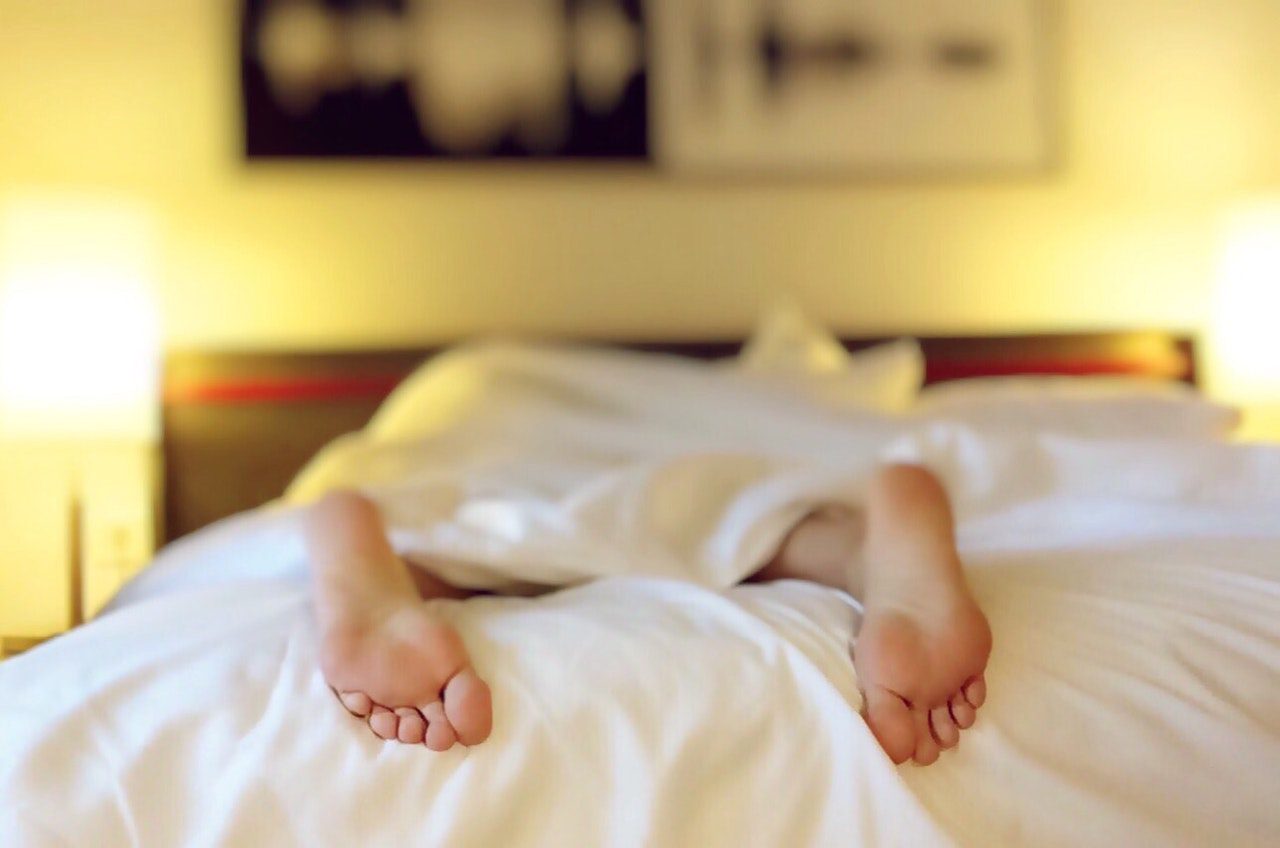Making sure that you get enough sleep each night is essential for your health and well-being. It is recommended that you get at least 8 hours of sleep each night for you to have enough energy for the next day. However, even if you get enough sleep each night, you must make sure that this sleep is good quality. Many people suffer from broken or irregular sleep, leading to them feeling tired and drowsy the next day. If you are one of these people looking to improve your sleep hygiene, here are eight ways to have a better night’s sleep.
Table of Contents
Reduce blue light exposure before bed
There are many different ways for you to improve sleep hygiene. One of the main ways is by reducing the amount of blue light you are exposed to before you go to bed. Blue light refers to the light from electronic devices, such as your mobile phone, laptop, computer, and even your television. Being exposed to too much of this light can be damaging to our eyes, and it can also trick your brain into thinking that it is daytime, meaning that you will not be tired enough to go to sleep at night. Reducing the amount of blue light you are exposed to before you go to sleep is a great way to improve sleep hygiene. Limiting the amount of time that you spend looking at a screen before you go to bed each night will definitely enhance the quality of sleep that you have.

Limit your caffeine
Although caffeine is excellent for boosting your energy levels throughout the day, having too much caffeine throughout the day can highly impact the sleep quality that you have that night. Research has stated that consuming caffeine up to 6 hours before you go to bed can significantly worsen your sleep quality. So, if you enjoy drinking coffee or tea throughout the day, make sure that you don’t consume any more after 2 or 3 p.m. By doing this, you are giving the caffeine that you have consumed throughout the day enough time to leave your system, meaning you will get a better night’s sleep.
Create a sleep routine
Believe it or not, going to sleep and waking up simultaneously each day can significantly improve the quality of the sleep you get each night. Although this may take some time to create, having a regular sleep routine can be highly beneficial for you. To create an effective sleep routine, you should try to go to sleep at the same time each night. When you begin to go to bed at the same time each night, your body will get used to this, and you will start to feel tired around the same time each night. Your body has its own biological clock, meaning if you go to sleep and wake up at similar times each day, your body will know when it is bedtime. Your body’s biological clock will allow you to create an effective sleep routine, resulting in you having a better quality of sleep each night.
Try not to nap
As well as creating an effective sleep routine, another way of improving the quality of sleep that you have every night is to avoid having a nap during the day. If you feel tired or lethargic throughout the day, it can be very tempting to have a nap during the day. It is known that having as little as a 20-minute nap during the day can greatly boost our energy levels, but unfortunately, this can reduce the quality of sleep that we have at night. If you nap during the day, more than likely, you won’t feel tired when you go to bed at night. Therefore, avoiding napping during the day will ensure that you sleep better at night.
Don’t drink alcohol
Alcohol can have a similar impact on the quality of your sleep as caffeine can. Having a couple of alcoholic drinks at night can negatively affect the quality of sleep you have and your hormones. Alcohol is known to increase or even cause issues such as sleep apnea, insomnia, and even snoring, which can all reduce your quality of sleep. Reducing or cutting out any alcohol you drink in the evening will lead to a better night’s sleep, meaning you will have more energy and feel more productive the following day.
Create a comfortable environment
One of the main things that can impact the quality of your sleep is the environment in which you go to sleep, which is typically your bedroom. Having a comfortable and cozy bedroom will help you to sleep better at night. If your bedroom is full of loud noises or bright lights, you will more than likely have a poor night’s sleep. The noise and light in your bedroom must be calming and relaxing for you to have a high-quality sleep every night. A great tip in creating a comfortable and relaxing environment is to use softer lighting, such as candles or a lamp, rather than your main bedroom light. This softer lighting will be less harsh on your eyes, meaning you will fall asleep easier. Another great way to fall asleep easier is to make sure there are no loud noises in your bedroom. Although if you need some noise in the background to help you drift off to sleep, you should try listening to some white noise, which can be very calming and will help you sleep better. Use a weighted blanket. A weighted blanket provides a calming sensation which helps you fall asleep and stay asleep.
Reduce the temperature

As well as creating a more comfortable environment for you to sleep in, a great way to improve the quality of your sleep is by reducing the temperate in your bedroom. Many studies have shown that your body needs to drop in temperature for you to sleep more comfortably. If it is too warm in your bedroom when you are going to bed, you will struggle to fall asleep.
Take a shower or bath
Another popular method that many people use to get a better night’s sleep is by taking a shower or bath. Having a warm and relaxing bath or shower before you go to bed is an excellent way of winding your body down after a busy day. Relaxing your body and muscles before you go to sleep at night will ensure that you fall asleep easier and significantly improve your sleep quality every night.
On average, a person will spend one-third of their life sleeping. With the importance of sleep so clear, it’s not just essential to get enough sleep, but it’s also critical that you’re able to get quality sleep. Sleep apnea is an obstructive breathing disorder characterized by disruptions in breathing during sleep, often disrupting a person’s night and, over time, their health as well.
One way to improve your sleep quality if you suffer from obstructive breathing disorders is using a continuous positive airway pressure (CPAP) machine. The CPAP machine delivers a steady stream of high concentrations of air through the mouth and nose into your airways, opening them and allowing you to breathe through the night.
However, not everyone can tolerate a CPAP machine, so an alternative solution is necessary. Sleep apnea mouthpieces have proven to be an effective and comfortable option for many people. These oral appliances are custom-fitted to your mouth and work by repositioning your jaw and tongue to open up your airway, thereby reducing the occurrence of apneas during sleep. They are less invasive than CPAP machines and often more convenient, making them a popular choice for those seeking a non-intrusive solution to their sleep apnea problems.
In conclusion, there are several different things that you can do to ensure that you have a better night’s sleep. By adopting some of these tips and methods into your daily routine, you will be sure to have better-quality sleep every night. Having a solid sleep each night will not only help you to feel more alert and energetic the following day, but it will also leave you feeling in a better mood.
Featured Photo by Pixabay from Pexels




